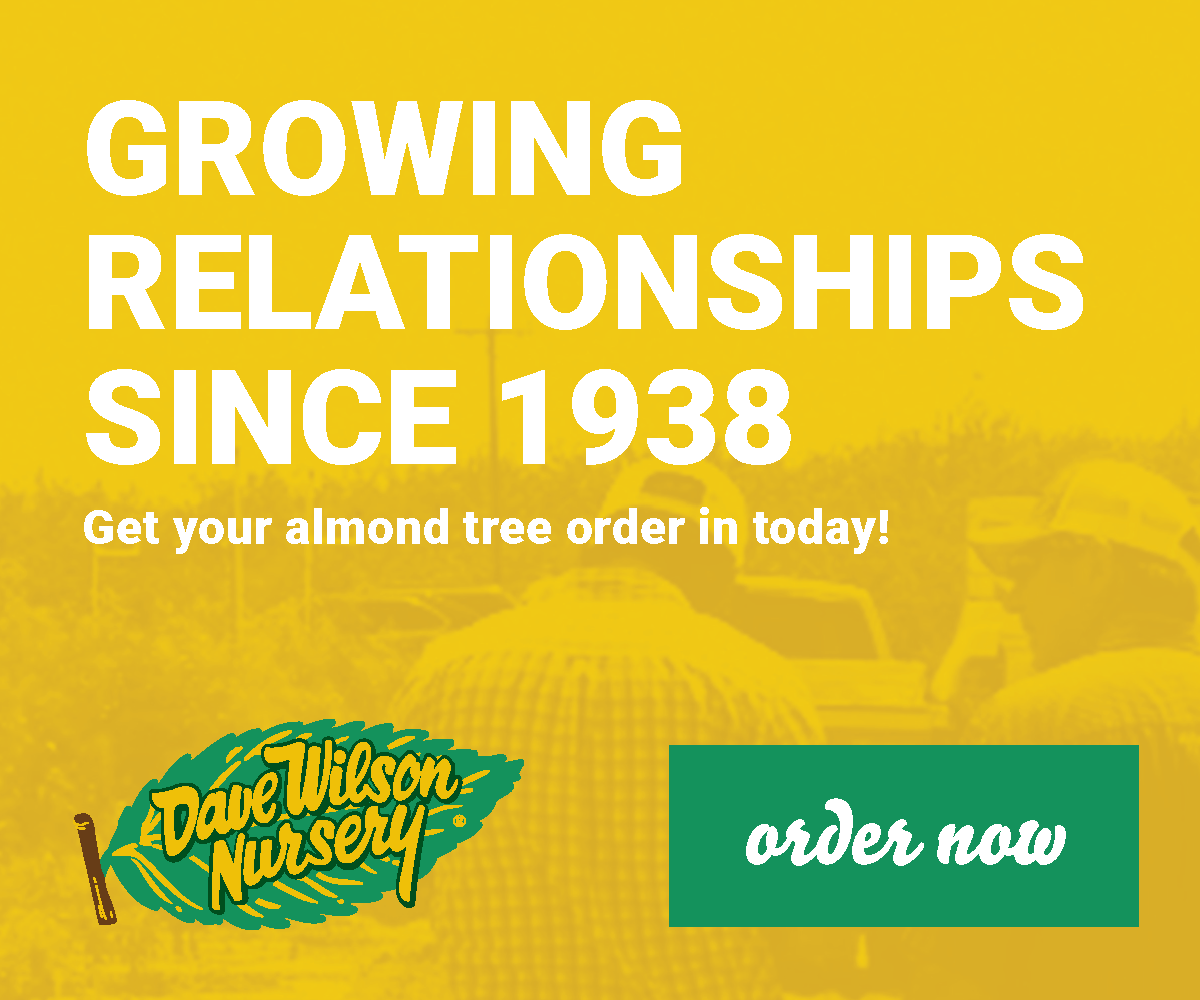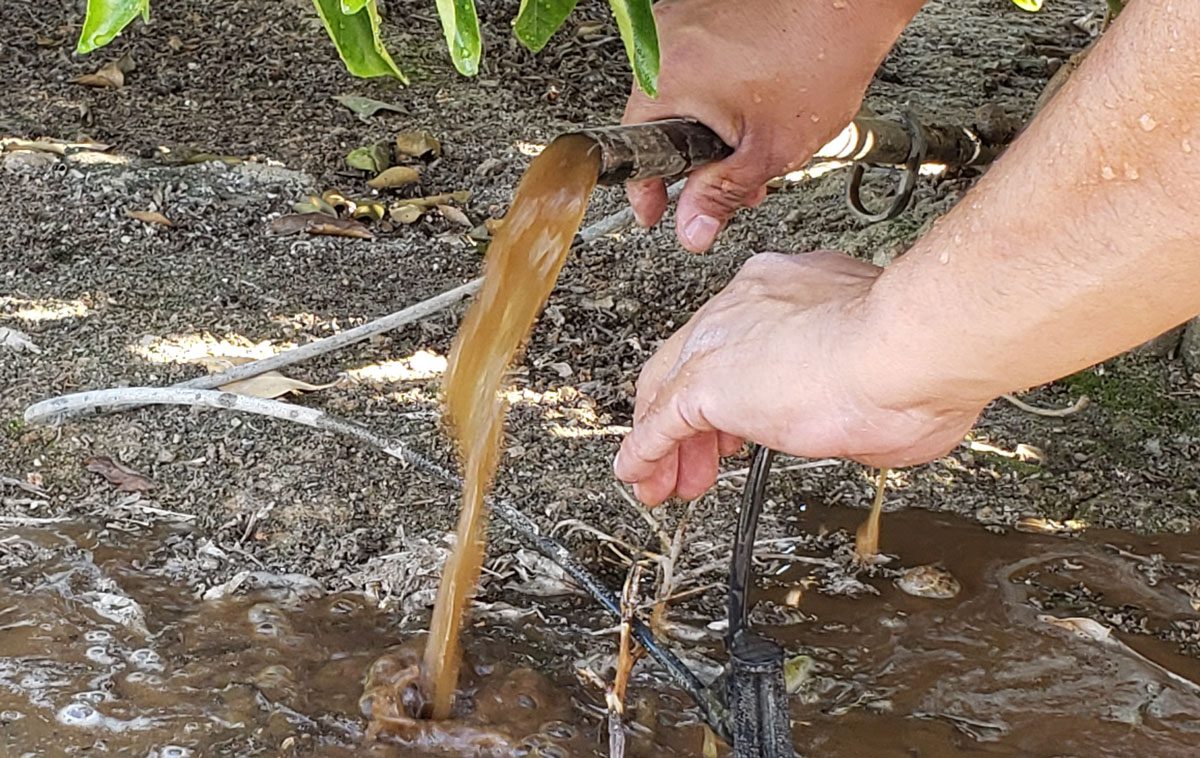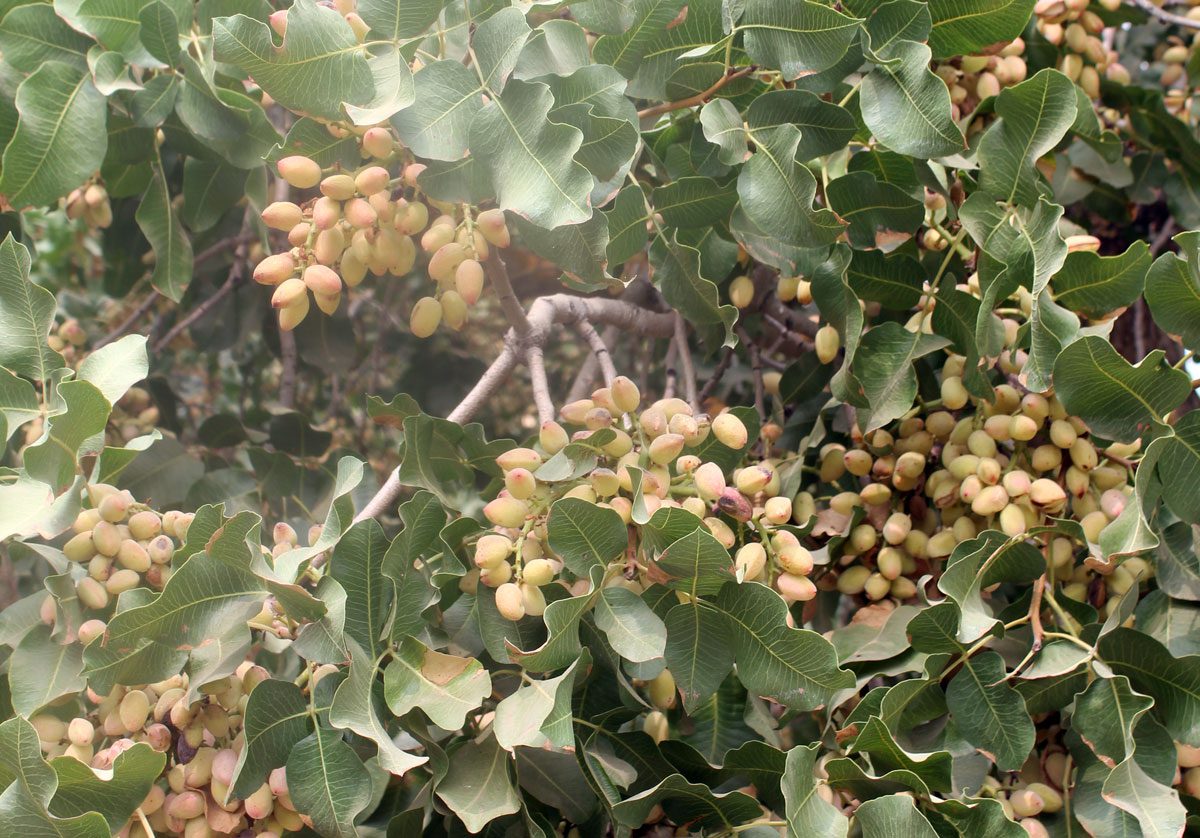
Some almond growers are exploring the idea of growing organic to capitalize on increasing popularity of organic nut products in the last decade, but management details and financial incentives aren’t always available.
In managing organic almonds, there are many things to consider in order to maximize yields and ultimately capture the premium associated with organic products. Insect pests, weeds and soil fertility are among the most important considerations.
Organic growers end up dealing with a lot of the same insects that they already deal with in conventional almonds. In a presentation during The Almond Conference 2020, a panel of growers spoke on insect management in their organic orchards.
Geordy Wise, senior vice president of farming operations for Pacific Ag Management, said that his organic operation in Kern County sees similar pest categories to conventional almonds, such as mites, navel orangeworm (NOW) and plant bugs. “[For] mite control, we’ve actually for four years done very well with organic products that have been available,” Wise said. “I think the key to it is trying to be a little more on the early side and not watch the populations increase. It’s kind of a strategy that I think you have to be fairly upfront on. [For] navel orangeworm, I tend to lean towards the sanitization.”
“Pest management has been one of the larger concerns we’ve had here on the organic farm,” said Wes Sperry, CEO of Sperry Farms. “We’ve had pretty good success I think for our first year. The first year, we used a number of different organic-labeled fungal sprays, bloom sprays. On the NOW side, we went with a product from Semios, their mating disruption. We had extreme success in that range. After harvest, we had worm damage results that were on par with or below even our conventional. We also did put in some hull split sprays along with the mating disruption from Semios, but we really felt that was a strong point of our pest management program.”
Weed issues in organic almond management are among the most difficult management challenges. Organic herbicides are not abundant and costs for them are still high. Growers, therefore, have found other alternatives for their orchards while organic herbicide research continues.
“Regarding weed management, that’s been one of the most challenging aspects, I feel like, of the organic journey that we’ve taken,” Sperry said. “We consulted a bunch of different farmers and experts in the field on some of the actual organic herbicides, and we have not tried any of those yet based on reviews and costs. What we have done is made the investment into a propane burner to burn. We’ve been using this propane burner to burn down the weeds in our strips. I’m not completely happy with the weed burning, but I think it’s the best thing we have available right now. We’ve also gone to mowing a wider mower to clean up the middles of our rows.”
Wise mentioned that netting under trees can suppress and keep weeds down, but repairs are the downside, making it a maintenance-driven solution.
Amelie Gaudin, Department of Plant Sciences, UC Davis, added that cover crops can provide weed suppression during the winter by competing with native vegetation.
“We recognize that there are benefits and tradeoffs as to what might work for different operations,” she said.
Regarding the challenges of a soil fertility program for the crop, Sperry and Wise both expressed difficulties implementing a fertility program in their organic operations.
“These particularly nitrogen-based organic fertilizers are really expensive,” Sperry said. “It’s been a big learning curve on how to get that nutrition and do it in a good budget. If you’re coming from conventional into organic, really it’s having a different mindset and the timing can be a little different.”
“Nitrogen will be the limiting factor; it’s just part of the game with organics,” Wise said.
If starting an organic almond operation is a consideration for a grower, the process of transitioning needs to be considered and growers need to be ready to experiment, according to Gaudin.
“Being proactive, seeking advice and exploring and experimenting with solutions that work for you and your operation is critical,” she said.
This article has been revised from its original posting to reflect corrections to direct quotes in the original article.











